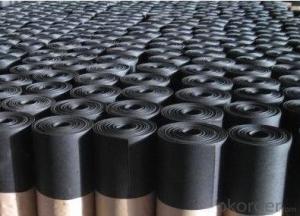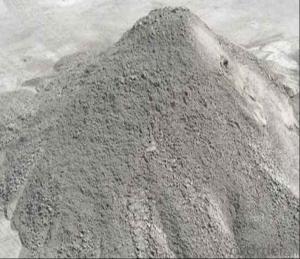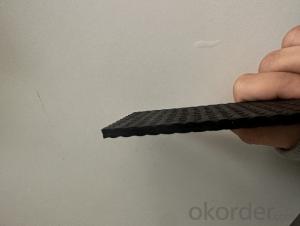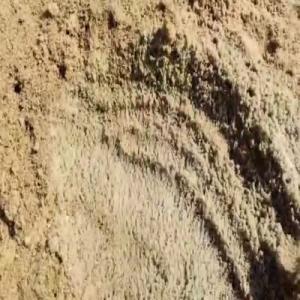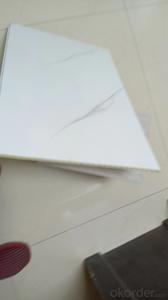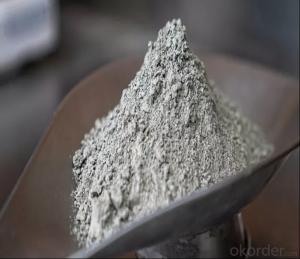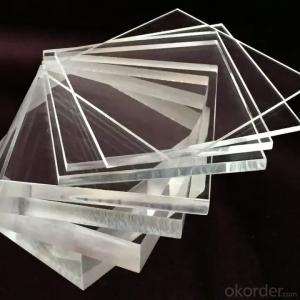EPDM Coiled Rubber Waterproof Membrane for Underground
- Loading Port:
- Shanghai
- Payment Terms:
- TT OR LC
- Min Order Qty:
- 50000 m²
- Supply Capability:
- 5000000 m²/month
OKorder Service Pledge
OKorder Financial Service
You Might Also Like
EPDM Coiled Rubber Waterproof Membrane for Underground
Description Of EPDM Coiled Rubber Waterproof Membrane for Underground:
•EPDM waterproof sheet has excellent anti-ozone-aging performance, able to resist ultraviolet light and corrosion of many chemical corrosive materials in the atmosphere
•It has high tensile strength, high ductility and strong retractility, it has excellent crack resistance, able to effect waterproof function even with tiny vibration of buildings.
• Excellent resistance to ozone, oxidation and sunlight.
• Resistance to chemicals; resistant to most inorganic products.
Main Features of EPDM Coiled Rubber Waterproof Membrane for Underground:
A.Polyester based SBS Modified Bitumen Waterproofing Membrane
a. Strong impermeability
b. High tensile strength, elongation, ability to adapt the grassroots shrinkage deformation and cracking
c. Puncture-resistant, broken resistant, tear-resistant
d. The corrosion resistance, resistance to mildew, weathering good
e. Construction convenient, hot-melt can be operated Four Seasons Construction, reliable joints
Specifications of EPDM Coiled Rubber Waterproof Membrane for Underground:
| Material | EPDM Rubber |
| Size | 1.2m (width)*20m (length) or customized, weldable type 2.05m or 4m width |
| Thick | 1.2mm, 1.5mm, 2.0mm |
| Type | Vulcanized & Weldable |
| Pattern | Non-reinforced (homogeneous) |
| Certificate | ISO9001/14001 |
Applications of EPDM Coiled Rubber Waterproof Membrane for Underground:
1. The substratum should be smooth, dry, clean, which can not have loosing and peeling phenomena.
2. Before application, clean up the basic level and eradicate the impurities.
3. Spread out the membrane on the substratum to loose sheet's stress. Use adhesive-glue to paint the substratum and the surface of membrane. When the adhesive is not sticky to hands, pave and press smoothly.
4. When pave the second volume of membrane, extrude 100mm of the edge of overlap of the first roll and do not paint with the adhesive. Pave the membrane on the substratum according to step so as to finish the whole pavement. When paving, do not tighten the waterproof membrane violently.
5. After that, use the special solvent to scrub the overlap joint. When it becomes fully dry , use the sheet glue to paint the both sides of the joint. Paint it again when it gets completely dry. Till the adhesive is not sticky to hands, press it smoothly and solidly.
6. Pay attention to fire prevention during application. Basement construction site shall be equipped with ventilation facilities
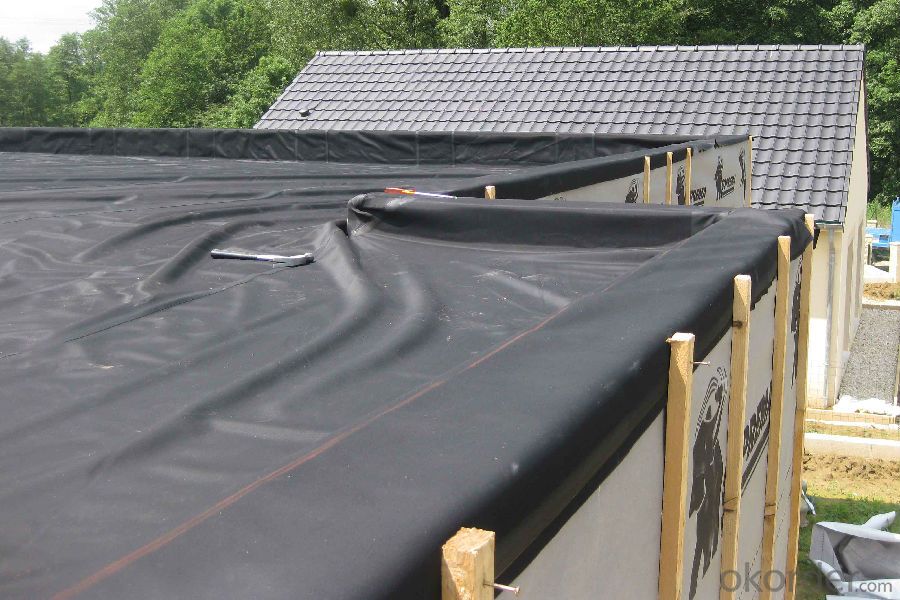
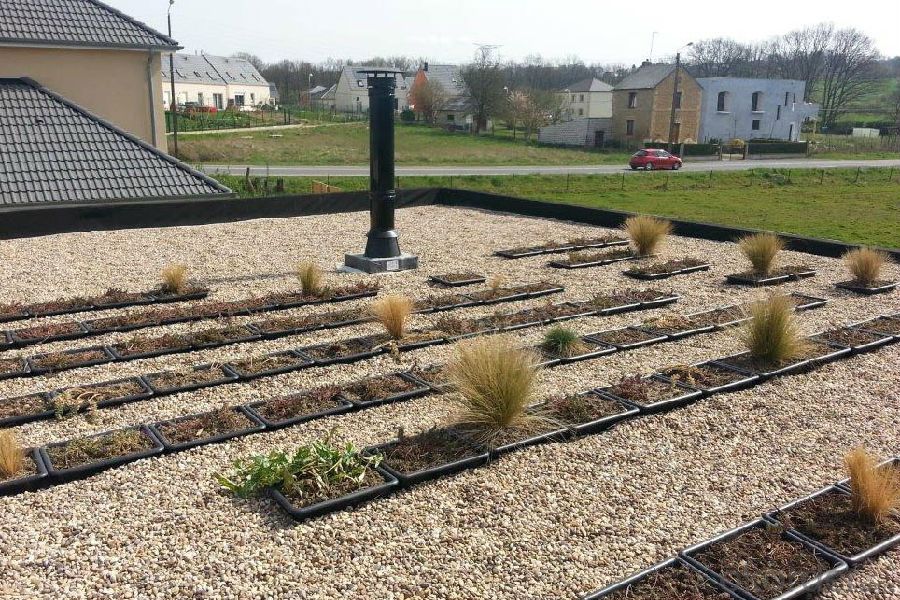
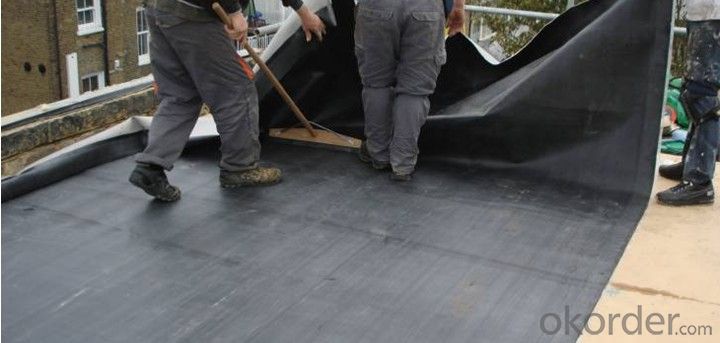
IMages of EPDM Coiled Rubber Waterproof Membrane for Underground:
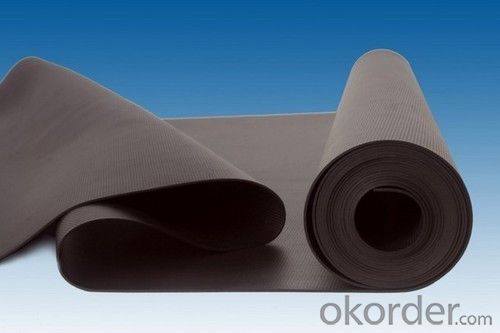
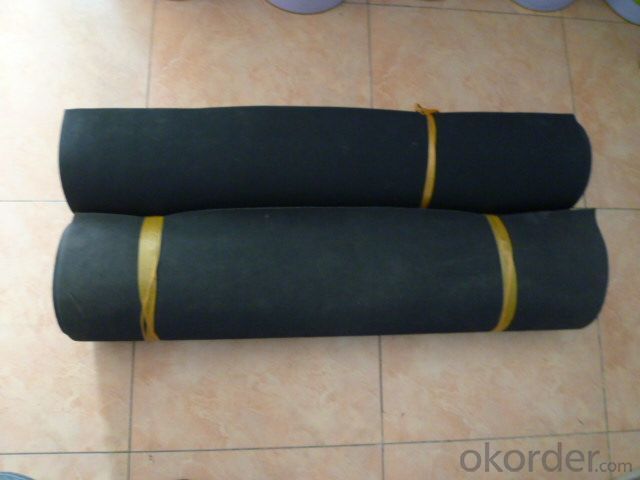
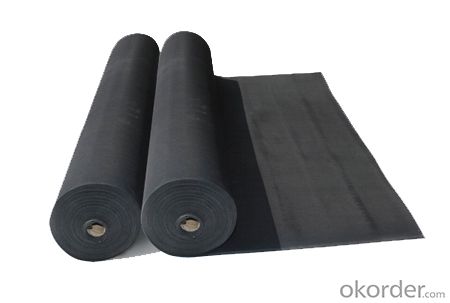
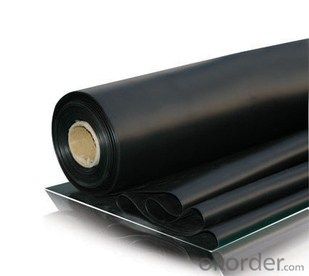
FAQ of EPDM Coiled Rubber Waterproof Membrane for Underground:
1. What are we supplying?
We are specialized in producing Colorful Asphalt Roof Shingle, SBS/APP modified bitumen waterproof membrane, Self adhesive bitumen waterproof membrane, PVC waterproofing membrane, EPDM rubber roofing membrane, Single Component Polyurethane Waterproof Coating, and Spray Polyurea Waterproof Coating
.
2. How Many years experience do we have?
We have been exported to more than 20 countries in the past 15 years.
3. How long do we usually reply your request?
We always reply our customer within 24 hours.
- Q:Can a waterproofing membrane be used on roofs with rooftop gardens?
- Yes, a waterproofing membrane can be used on roofs with rooftop gardens. In fact, it is highly recommended to use a waterproofing membrane to protect the underlying structure from water damage. A rooftop garden adds additional weight and moisture to the roof, so a proper waterproofing system is essential to prevent leaks and ensure the longevity of the roof. The waterproofing membrane acts as a barrier against water infiltration and helps to keep the rooftop garden and the building below dry.
- Q:Does a waterproofing membrane require any specific safety precautions during installation?
- Specific safety precautions are necessary when installing a waterproofing membrane. Consider the following key precautions: 1. Personal Protective Equipment (PPE): Installers must wear appropriate PPE, such as gloves, safety glasses, and protective clothing, to avoid skin contact with the membrane and potential chemical hazards. 2. Adequate Ventilation: Ensure that the installation area has proper ventilation to prevent the accumulation of fumes or vapors. If working in a confined space, use ventilation systems to eliminate any potentially harmful gases or odors. 3. Hazardous Chemicals: Some waterproofing membranes contain hazardous chemicals or solvents. Installers should carefully read and adhere to the manufacturer's instructions for handling and using these products. Proper storage, handling, and disposal of chemicals are crucial to prevent accidents or environmental contamination. 4. Slips and Falls: The surface can become slippery during installation, particularly when applying the membrane on wet surfaces. Installers should take precautions to maintain stability and utilize safety equipment like harnesses or guardrails when working at heights to prevent falls. 5. Heat Hazards: Proper installation of certain waterproofing membranes requires the use of heat. Installers should exercise caution when working with heat sources such as torches or heat guns to prevent burns or fire hazards. Keep fire extinguishers readily available and ensure that personnel receive adequate training on fire safety protocols. 6. Electrical Safety: Waterproofing membranes might be installed in areas where electrical systems are present. Installers should exercise caution when working near live electrical wires or outlets and adhere to proper electrical safety procedures to prevent electric shocks or fires. It is crucial for installers to undergo comprehensive training and diligently follow all safety guidelines provided by the manufacturer. This will help minimize the risk of accidents, injuries, or property damage during the installation process.
- Q:Can waterproofing membranes be used on underground structures?
- Indeed, underground structures can make use of waterproofing membranes. These membranes have been designed with the aim of creating a barrier against water infiltration and are widely utilized in various applications, including basements, tunnels, and underground parking lots. The main objective of employing waterproofing membranes in underground structures is to avert water penetration, as this can lead to structural damage and compromise stability. Generally, these membranes are crafted from materials like modified bitumen, PVC, EPDM, or HDPE, all of which possess outstanding water resistance properties. By applying waterproofing membranes correctly, a continuous and robust barrier is established, preventing water from seeping through the walls, floors, or foundations of underground structures. These membranes can be installed externally or, on occasion, as an integral part of the concrete walls or floors during construction. In addition to their water resistance capabilities, waterproofing membranes also offer protection against other elements such as chemicals, gases, and radon. They prove highly effective in preventing issues related to moisture, like the growth of mold, the deterioration of building materials, and structural damage, thus ensuring the durability and integrity of underground structures. It is crucial to bear in mind that the proper installation and maintenance of waterproofing membranes are of utmost importance for their effectiveness. It is advisable to engage the services of a qualified professional who can assess the specific requirements of the underground structure and recommend the appropriate type of waterproofing membrane and installation method. All in all, waterproofing membranes serve as a dependable and efficient solution for preventing water infiltration in underground structures, providing long-lasting protection and preserving the structural integrity of the building.
- Q:Is a waterproofing membrane compatible with different types of flooring materials?
- Yes, a waterproofing membrane is compatible with different types of flooring materials. It can be used with various flooring options like tiles, hardwood, laminate, vinyl, and more to provide protection against water damage and ensure a long-lasting and durable flooring installation.
- Q:Can waterproofing membranes be used in basements?
- Yes, waterproofing membranes can be used in basements. Waterproofing membranes are specifically designed to provide a barrier against water penetration and are commonly used in basements to prevent moisture and water seepage. These membranes are typically made of materials such as rubber, bitumen, or polyethylene, and are applied to the basement walls and floors to create a waterproof seal. By preventing water from entering the basement, these membranes help to protect the foundation, walls, and interior spaces from water damage, mold, and other moisture-related issues. Additionally, waterproofing membranes can also be used in combination with other waterproofing techniques such as drainage systems and sump pumps to provide comprehensive protection against water infiltration in basements.
- Q:Are waterproofing membranes suitable for high-traffic areas?
- Yes, waterproofing membranes are suitable for high-traffic areas. Waterproofing membranes are designed to provide a protective barrier against water infiltration, preventing water damage and maintaining the integrity of the structure. High-traffic areas, such as walkways, driveways, parking lots, and other heavily used spaces, are prone to constant exposure to water, which can lead to structural damage and deterioration over time. By applying a waterproofing membrane, these areas can be effectively protected from water intrusion, ensuring their durability and longevity. Additionally, waterproofing membranes are often designed to be slip-resistant, providing an added safety feature in high-traffic areas. Therefore, using waterproofing membranes in high-traffic areas is a wise choice to mitigate water-related issues and maintain the structural integrity of the space while ensuring the safety of occupants.
- Q:Coil waterproof roofing requirements
- 1, grass-roots level, leveling layer strength in line with regulatory requirements, can not afford to sand, no cracking, the surface clean no waste residue;
- Q:Does a waterproofing membrane have any impact on the indoor air quality?
- Yes, a waterproofing membrane can have an impact on indoor air quality. It helps prevent water infiltration into the building, reducing the risk of moisture-related issues such as mold and mildew. By keeping moisture out, it helps maintain a healthier indoor environment with improved air quality.
- Q:Are waterproofing membranes resistant to chemicals?
- Waterproofing membranes are generally resistant to chemicals, providing a protective barrier against water infiltration. These membranes are typically made from materials like PVC, TPO, or EPDM, which possess excellent chemical resistance properties. Their engineering ensures they can endure exposure to various chemicals like acids, alkalis, solvents, and oils without deteriorating. This chemical resistance guarantees that waterproofing membranes can maintain their integrity and effectiveness even in environments with common chemical exposure, such as industrial settings, laboratories, or chemical storage areas. However, it is important to consider that the specific chemical resistance capabilities may differ based on the type and quality of the chosen waterproofing membrane. Therefore, it is crucial to select the appropriate membrane that matches the project's specific chemical exposure requirements.
- Q:Can a waterproofing membrane be used for a basement floor?
- Yes, a waterproofing membrane can be used for a basement floor. Waterproofing membranes are designed to prevent water from seeping through the surface and reaching the underlying structure. By applying a waterproofing membrane to the basement floor, it creates a barrier that helps to keep the floor dry and prevent water damage. This is particularly important in basements, as they are commonly prone to water infiltration due to their location below ground level. Additionally, a waterproofing membrane can also help to reduce the risk of mold and mildew growth, as moisture is effectively sealed out. It is important to choose a high-quality waterproofing membrane that is specifically designed for basement floors and to follow the manufacturer's instructions for proper installation.
1. Manufacturer Overview |
|
|---|---|
| Location | |
| Year Established | |
| Annual Output Value | |
| Main Markets | |
| Company Certifications | |
2. Manufacturer Certificates |
|
|---|---|
| a) Certification Name | |
| Range | |
| Reference | |
| Validity Period | |
3. Manufacturer Capability |
|
|---|---|
| a)Trade Capacity | |
| Nearest Port | |
| Export Percentage | |
| No.of Employees in Trade Department | |
| Language Spoken: | |
| b)Factory Information | |
| Factory Size: | |
| No. of Production Lines | |
| Contract Manufacturing | |
| Product Price Range | |
Send your message to us
EPDM Coiled Rubber Waterproof Membrane for Underground
- Loading Port:
- Shanghai
- Payment Terms:
- TT OR LC
- Min Order Qty:
- 50000 m²
- Supply Capability:
- 5000000 m²/month
OKorder Service Pledge
OKorder Financial Service
Similar products
New products
Hot products
Related keywords
